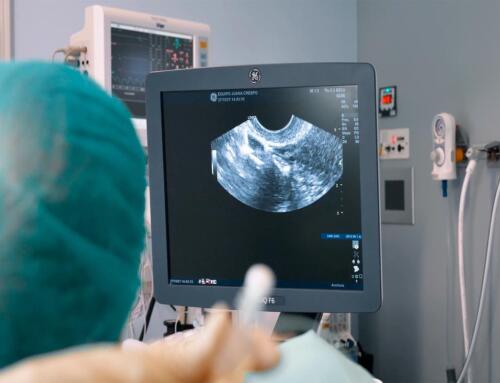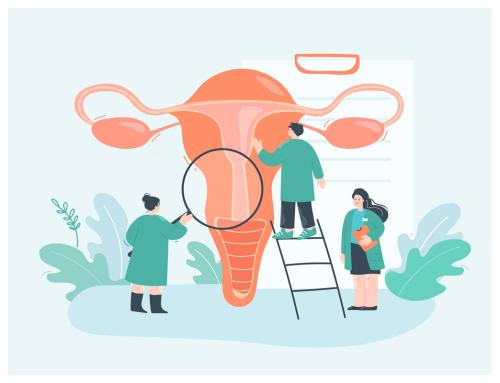Every day, many articles and posts get published on websites and social media talking about foolproof methods for getting pregnant: “Five foods that will improve your fertility”, “Ten exercises to strengthen your reproductive system and achieve pregnancy” … These are topics that surely will sound to many women who, like you, want to become a mother.
Concerns about fertility issues are not new or have not been experienced by generations before us. But in recent years, this concern has spread considerably. The main reason? A worldwide increase in infertility cases.
According to different medical associations, currently, one in five couples of fertile age have problems achieving a pregnancy naturally. According to the WHO, this problem affects about one million couples in Spain.
Of course, there are different factors that make conceiving difficult, such as age, delaying conception, stress, tobacco consumption or pollution.
On the other hand, science has proven that some of our daily habits can also favor pregnancy. Even so, there are still many beliefs regarding fertility and pregnancy. Sometimes they are true, sometimes they are questionable, and other times they are baseless and unscientific.
Five false myths to promote pregnancy
Below, are some of the most popular beliefs: Are they real or are they just false myths?
-
If you are in good health, getting pregnant “the first time” is easy
According to experts, up to the age of 30 the probabilities of getting pregnant are 20-25% (monthly). Starting the age of 37, the percentage drops to 12%; and, at 40 years old, it is 7%. Since the age of 43, the probability of pregnancy per month is only 3-4%.
Even though being healthy generally increases the chances of conceiving, (and healthy habits should always, and without exception be practiced ) aging is however, a very important factor that will greatly decrease the possibilities of getting pregnant.
-
Increasing your sexual activity, will increase your probabilities of conceiving
In reality, women’s fertile days are only 4-5 per month. They usually coincide with days 13-17 of the cycle (in women with regular cycles). Therefore, to increase your chances of pregnancy, it is advisable to have sex on those days or a few days before and after.
-
There are postures to encourage pregnancy
This is one of the most widespread pregnancy myths. It has not been proven that there are better positions than others to achieve pregnancy. Nor are there any studies that corroborate that lying down and resting after sexual relations will help the sperm reach the fallopian tubes more easily.
In any case, what is important to facilitate pregnancy is that ejaculation takes place at the bottom of the vagina.
-
The problems in achieving pregnancy are always related to women
This myth has been losing credibility over the last few decades, as reproductive medicine has shown that fertility problems affect both women and men.
In these last cases, the reasons can be distinct:
- Poor semen quality: disorders such as Oligospermia or low sperm count, Asthenospormia or low sperm motility, Teratospermia or sperm malformation, etc.
- Hormonal disorders: they occur when the body does not produce enough testosterone or gonadotropins.
- Retrograde ejaculation: it occurs when the sperm, instead of being expelled during ejaculation, are directed to the bladder.
- Genetic or hereditary factors: these may be anatomical abnormalities that prevent ejaculation, as well as hereditary diseases such as Noonan Syndrome, myotonic dystrophy or cystic fibrosis.
With regard to the age factor, in the case of men, there are many studies that show that sperm quality decreases after the age of 39. Furthermore, problems of erectile dysfunction and the risk of genetic anomalies also increase with age.
-
If you take contraceptive pills, getting pregnant will be easier when you stop the treatment
Ovulation will no longer be inhibited when you stop taking the pills: your eggs will work again, you will have regular menstrual cycles again and your fertility will be restored.
However, this does not guarantee pregnancy. In fact, this type of treatment has other purposes besides contraception, and should never be used without gynecological prescription as a “possible” method to facilitate pregnancy in the future.
How to facilitate pregnancy in a simple way
Experts agree on some guidelines that increase the chances of getting pregnant.
Some of them are:
-
Being in good health
Before seeking pregnancy, it is advisable to assess the viability of it as we find out if we suffer from pathologies such as diabetes, hypertension, obesity or hereditary diseases; which not only makes conceiving difficult, but can put the gestation at risk in case it occurs.
-
Eliminate harmful habits and adopt healthy habits
To increase the chances of conceiving, it is necessary to eliminate habits that are harmful to your health such as tobacco or alcohol consumption, and to adopt others such as eating healthy or exercising regularly. This is not an infallible method but possibilities of getting pregnant will increase.
In some cases, specialists can also prescribe supplements such as folic acid, iodine and other vitamins to facilitate fertilization and a healthy gestation.
-
Plan your sexual relations
Obviously, it’s not about keeping a strict or unalterable calendar, but it is about being aware of your fertile days in order to increase the chances of getting pregnant.
-
If you have any questions, reach out to us
There are still many myths regarding fertility and assisted reproduction treatments. Therefore, if you have any questions, we encourage you to consult them with our specialists.
If you have been trying to get pregnant for a long time without succeeding, we will be able to make a proper diagnosis at Equipo Juana Crespo that will lead us to discover the reason why pregnancy has not been achieved. Our goal will be to detect the cause and create a treatment strategy that is 100% personalized for your case. Shall we talk?
















